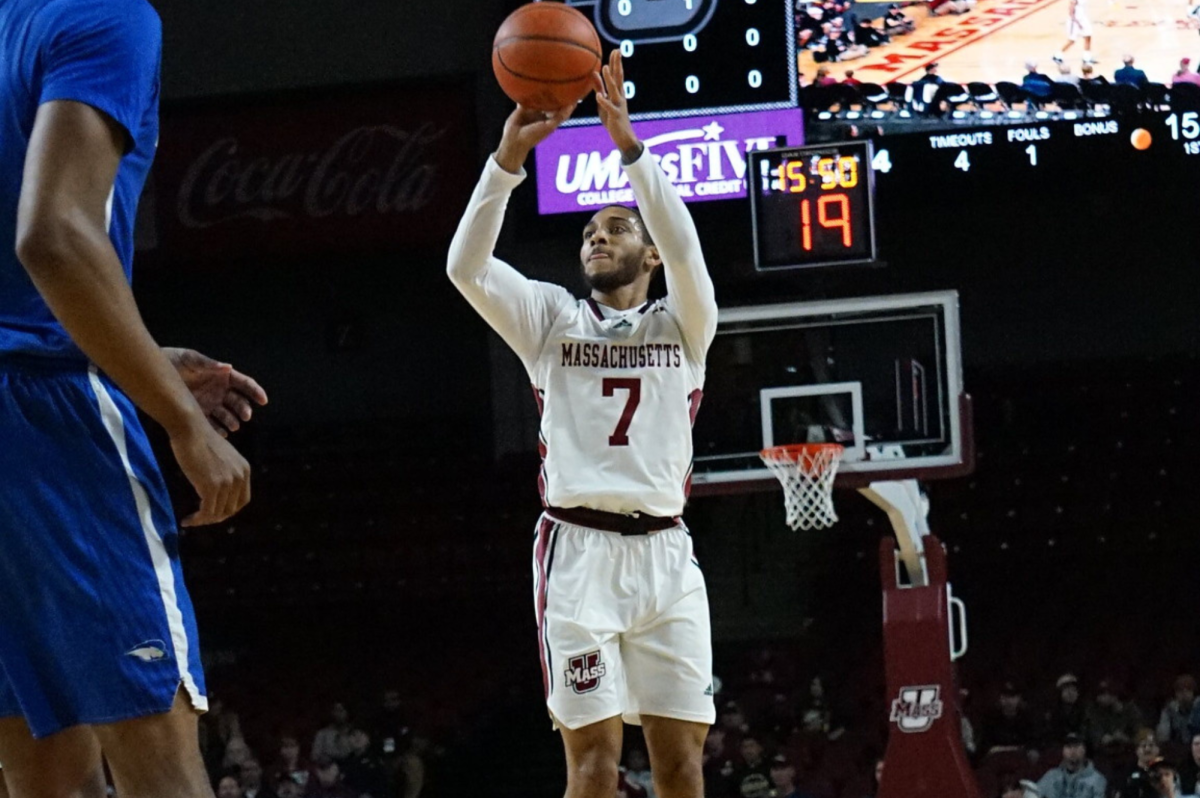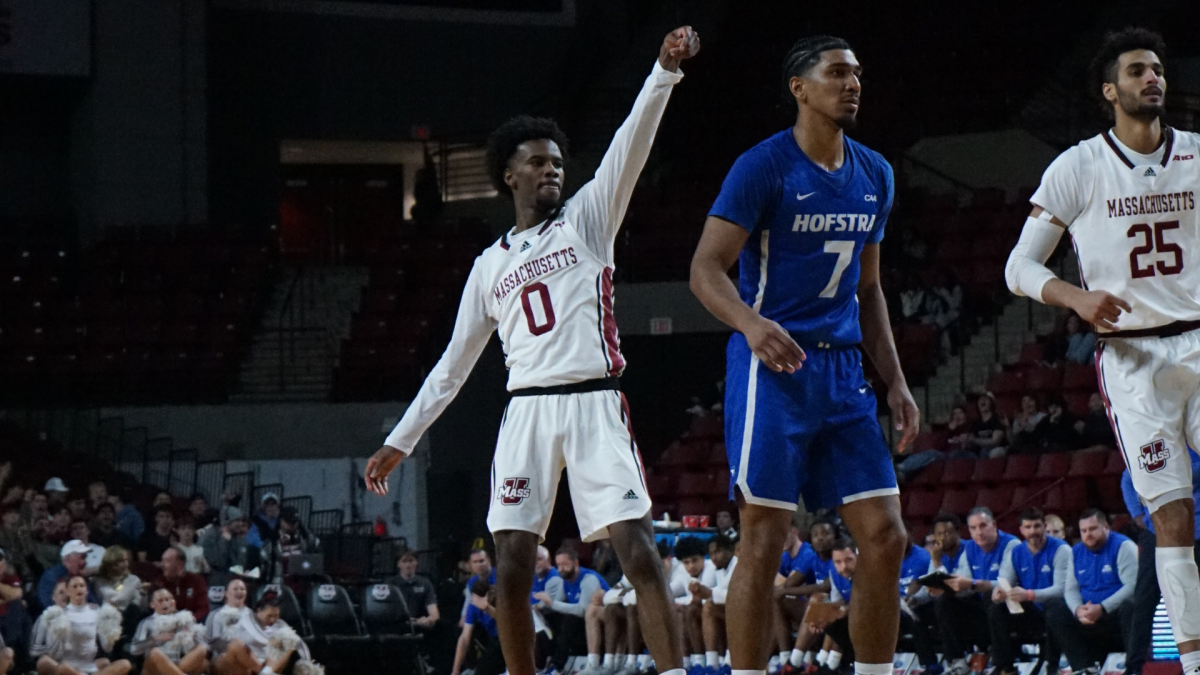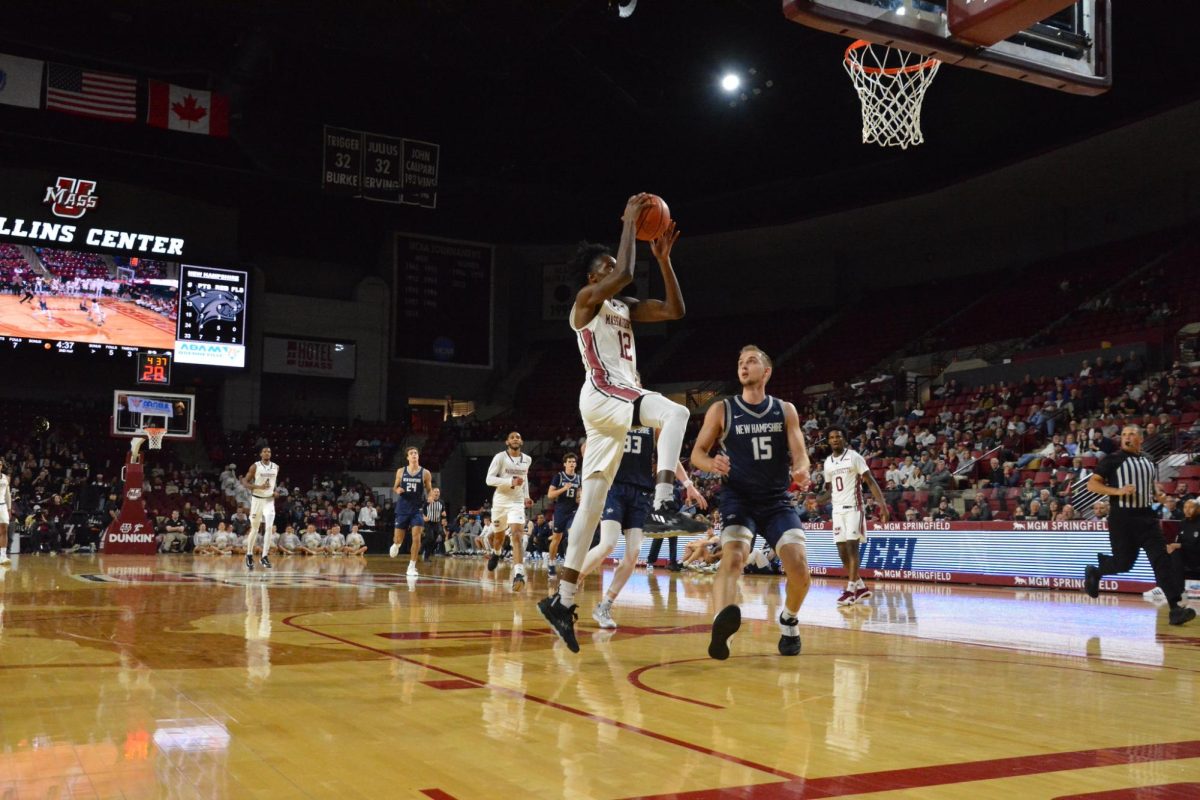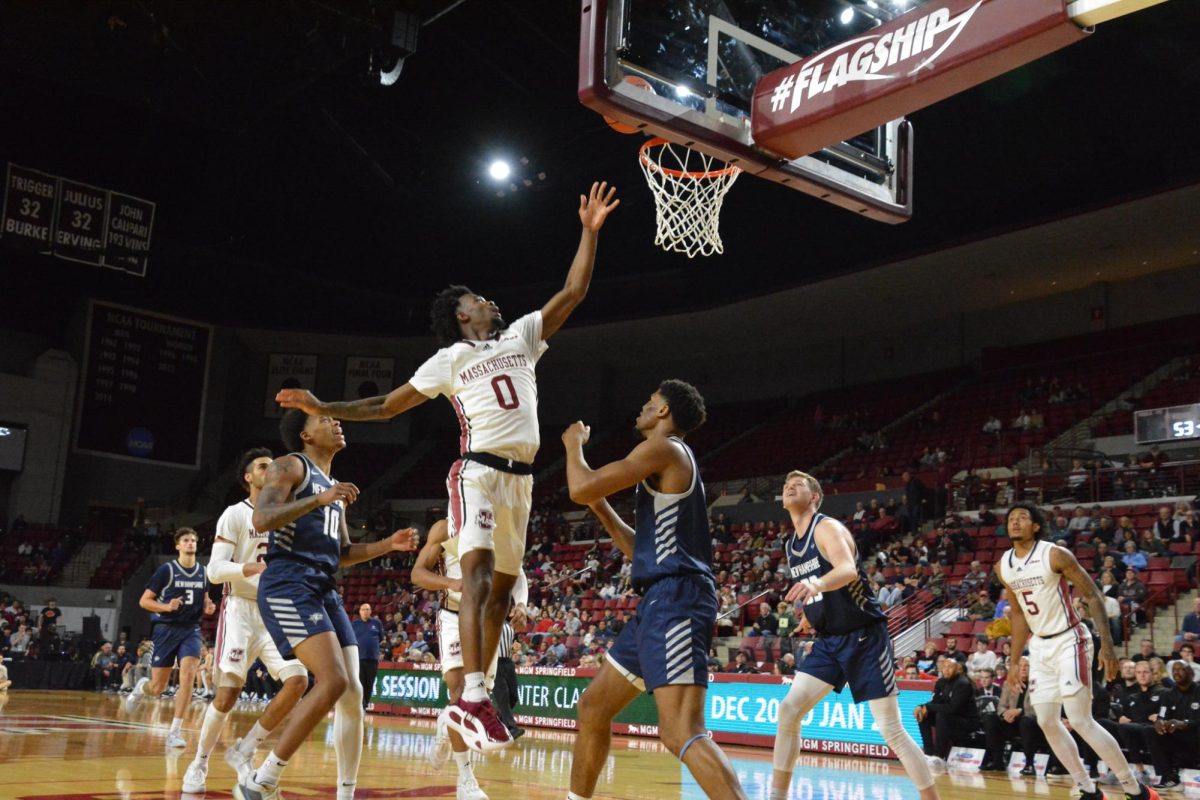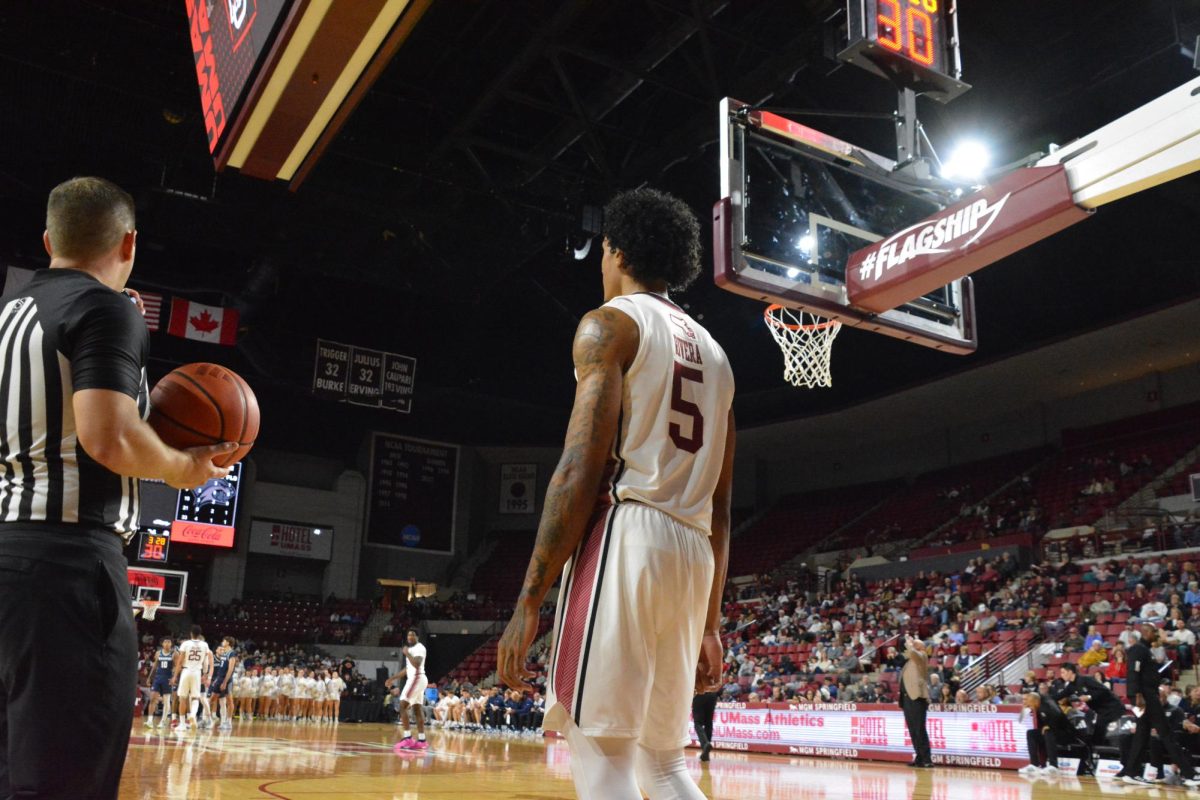 When former Memphis coach John Calipari introduced the dribble-drive motion offense to his basketball team before the 2005-06 season, he had the benefit of having two point guards who possessed solid ball-handling ability and a knack for scoring.
When former Memphis coach John Calipari introduced the dribble-drive motion offense to his basketball team before the 2005-06 season, he had the benefit of having two point guards who possessed solid ball-handling ability and a knack for scoring.
Darius Washington, Calipari’s first point guard to run the new offense, averaged 14.4 points per game in his two years with the Tigers and earned All-Conference USA team honors his sophomore year.
The next point guard to take over was Derrick Rose, who wound up becoming the No. 1 pick in the 2009 NBA Draft after averaging 14.9 points per game with Memphis.
Massachusetts men’s basketball coach Derek Kellogg brought the offense along with Vance Walberg, who created the dribble-drive when he took over before the 2008-09 season. Kellogg hoped that his point guard, Chris Lowe, could become a prolific scorer in the offense similar to Washington and Rose.
Lowe’s scoring average went up from 11.8 points per game to 12.4, but he also averaged four turnovers a game compared to his junior year when he averaged 2.9, and the Minutemen finished 10th in the Atlantic 10.
This year, sophomore David Gibbs got the nod as the starting point guard for UMass (3-4), but he struggled in the offense under Walberg’s system, averaging 2.9 points and 2.9 assists per game.
Kellogg tried using junior Gary Correia at that position by giving him more minutes, but he also struggled under the offense.
Over Thanksgiving break, Kellogg figured he’d shake the lineup around a little bit by playing the Minutemen’s leading scorer, Ricky Harris, as point guard in order to have his biggest threat bringing the ball up like he had at Memphis.
Kellogg made the move mostly because he thought Harris would be more comfortable as an experienced player compared to Gibbs.
“I just felt like putting a senior back there with the ball brought stability to the team and Gibbs was playing well, but I need him to get more comfortable with that position,” Kellogg said.
The only concern Kellogg had about making the move was that his scoring might go down and because UMass relies so much on Harris to make the offense work, the switch might do more harm than good.
So far, Kellogg likes what he sees. Harris is still one of the leading scorers on a consistent basis, and he has an understanding of how to play within the offense.
“It’s nice to have a point guard who can put the ball in the basket as well as distributing it,” Kellogg said. “I just think that Ricky is our most mature player. He is our only senior, and to give your older guys the ball is really the way to go.”
On Wednesday night against Quinnipiac, Harris (six assists) nearly tied his career-high in assists (seven on Jan. 30, 2008 against Duquesne), and also scored 19 points. That effort was enough to convince Kellogg that Harris is best suited for the position.
“All in all, I think he might’ve been the best or second best player in that game,” Kellogg said.
The transition hasn’t been perfect. Against Rutgers and Michigan State, Harris combined for 11 turnovers, but Kellogg believes as he becomes used to his new position, that number isn’t going to be so high.
In an ideal situation, Gibbs will go back to point guard either sometime this year or next year once he becomes acclimated with running the dribble-drive offense and gains experience. But for now, Kellogg believes that Gibbs will improve the most as a point guard either by playing shooting guard or sitting behind Harris.
Adam Miller can be reached at [email protected].


